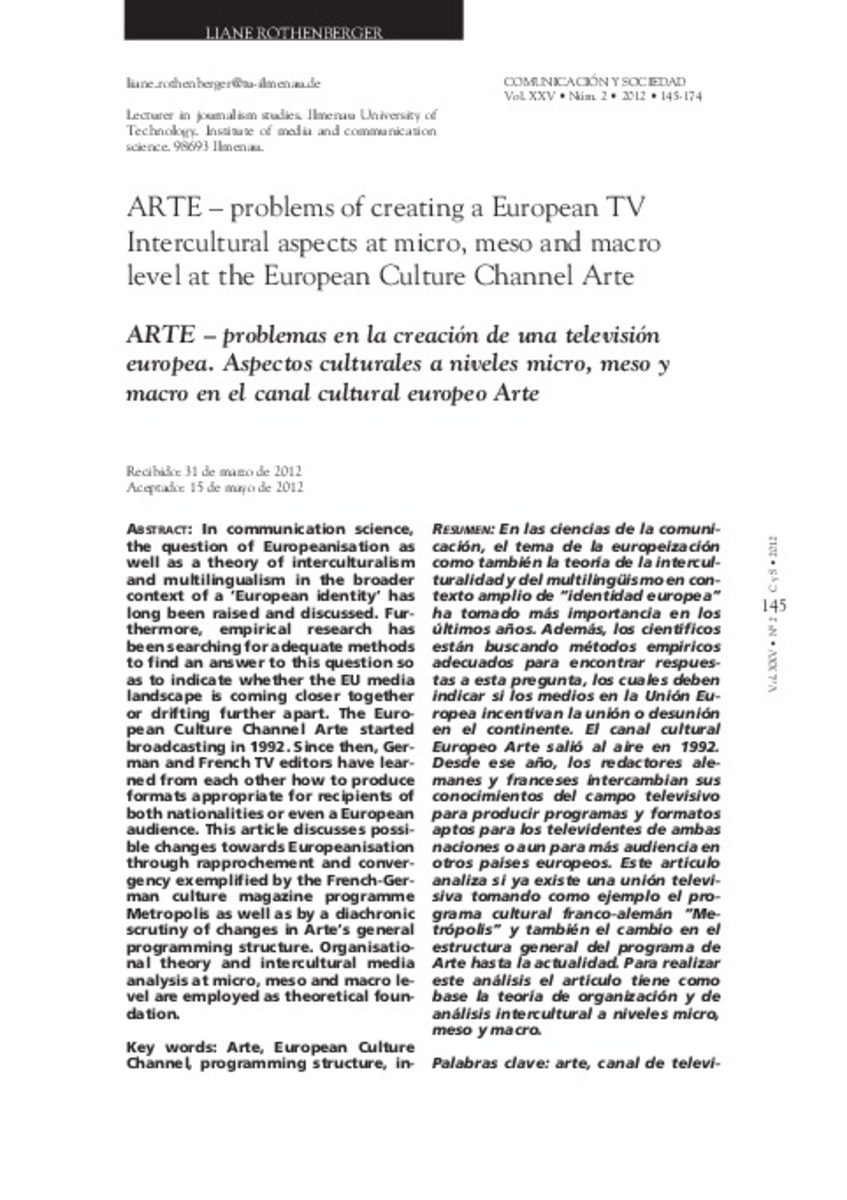ARTE – problems of creating a European TV Intercultural aspects at micro, meso and macro level at the European Culture Channel Arte
Keywords:
Arte
European Culture Channel
Programming structure
Intercultural media analysis
Organisational approach
Publisher:
Servicio de Publicaciones de la Universidad de Navarra
Citation:
ROTHENBERGER, L., ""ARTE – problems of creating a European TV Intercultural aspects at micro, meso and macro level at the European Culture Channel Arte "" en: Communication and Society/Comunicación y Sociedad, vol. XXV, n. 2, 2012, pp.145-174.
Statistics and impact
0 citas en

0 citas en

Items in Dadun are protected by copyright, with all rights reserved, unless otherwise indicated.







